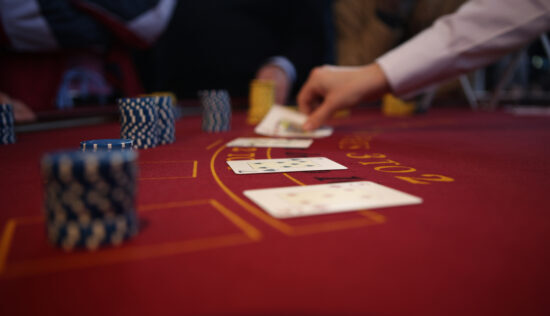History of blackjack
Blackjack is one of those casino games that never seems to lose its allure. It has continued to enthrall gamblers everywhere and is considered the most popular casino game in the world.
It is simple enough — players play against the dealer, aiming to get a card total as close to 21 as possible without exceeding that number. The game is easy to learn, and because it combines luck and skill, even new players have a good chance of winning if they understand the rules and how to place bets.
As a beginner, one may wonder about the origins of blackjack and how it compares to modern blackjack. What has been its impact on casino culture and what is blackjack’s impact on gambling? How has it affected the casino landscape?
The answers to these questions may not affect how someone plays, or even determine whether they become a good blackjack player or not. However, learning about the game makes it easier to understand the rules, how to bet, and how to interact with other players.
Origins of blackjack
Like with many other casino games, it is hard to pinpoint when blackjack was born, but historians agree that it originated in France around 1700. The game used cards called Vingt-et-Un (twenty-one) and was played in the French court of King Louis XV.
Another theory has it that blackjack was invented by the Romans who played it using wooden blocks that were inscribed with different numbers. However, this is unconfirmed blackjack history, and it is based on the fact that Romans loved to gamble. To date, there is no solid evidence to show that the Italians were the first to play this game.
A version of blackjack existed in Spain in the 1800s. It was called Trente-Un which translates to one and thirty, and players aimed to get as close as possible to 31 with only three cards. There was also an Italian version called Sette e Mezzo (seven and a half) and a French version called French Quinze (fifteen). These are still played today although they are rare.
Blackjack made it to American shores in the 18th century — it was brought by French colonists who were keen to replicate many of the aspects of everyday life in France in colonized lands. For various reasons, the game did not spread in France after it was invented, but when French colonists traveled abroad, they took it along with them. It quickly gained popularity in the Americas and became known as blackjack. By 1820, gamblers could play it in gambling establishments in New Orleans, although the rules were a little different from the original game.
We cannot talk about the history of blackjack without mentioning Eleanor Dumont. A Frenchwoman born in New Orleans, she was skilled at playing the game. She had been a dealer, and when she arrived in California she would travel from place to place teaching people about the game until she eventually opened a gambling hall in Nevada City, and the location became known as Vingt-et-Un.
She had arrived there in 1854 and with her knowledge of dealing cards, she decided to capitalize on America’s fascination with French women. People traveled from far and wide to play her games because she was considered an exceptional dealer. She would only allow well-dressed and respectable men into her games, was keen on casino etiquette, and her parlor was a success until gold reserves started to wane in the area.
By this time, however, blackjack was well established. According to some, the game grew in popularity because gambling houses offered players an incentive to take part in blackjack. If a player’s hand was made up of an ace of spades and a Blackjack, for example, the payout was 10:1.
The origin of the name blackjack is not entirely clear. Some historians argue that the above theory is not accurate and attribute the name to Klondike miners during the gold rush. They named the game after zinc blende, which was associated with gold and silver deposits.
Wherever the name came from, the game has survived and today, it is one of the most popular games in casinos across the United States. Because it is easy to learn and rewards players generously, it is considered a star attraction in most establishments.
Modern blackjack
Blackjack is now more popular than ever and it has made its way into pop culture. Many famous movies have storylines that revolve around it. 21, based on a book by Ben Mezrich, is a true story that tells of an MIT blackjack team that tried to outsmart casinos in Las Vegas.
Rain Man, a cult classic featuring Tom Cruise and Dustin Hoffman, features blackjack in the plot and gives the viewer a little bit of insight into the connection between the game, mathematical genius and card counting.
There is no shortage of books that have stories built around blackjack and it features heavily in stories about the underworld. It is also a popular theme in Manga comics and novels.
Is modern blackjack any different from the original versions? The rules have changed as the game has evolved but the basic premise remains the same. The dealer deals each of the players around the table two cards each and deals himself one card. If any of the players’ cards add up to 21, they have a blackjack and they win their bet. If the player draws cards that add up to less than 21 they can decide whether they want to draw or stay.
They are allowed to keep drawing cards until they are happy with what they are holding. After all the players have taken their hands, it is the dealer’s turn, and he draws until he gets cards that add up to 17 or more. The players compare their hands to the dealer’s and whoever has a card combination that is closest to 21 wins the game. All winning hands win 1:1 but players who draw a Blackjack (two cards that add up to 21) win at 3:2.
However, modern blackjack has not always been like this. Back in the 1970s, the game was mostly played using one deck and because there were not so many mathematically astute and strategic players the house had a distinct advantage.
That is not to say that the players were at a disadvantage, or there were not any who were smart enough to beat the house. Some patrons understood the game and how to beat the house, and they often walked away with significant winnings. That is why the game did not lose its appeal.
The 1980s brought some changes to the game in some of the big gambling houses in Las Vegas and other major casino locales in the United States. They increased the number of decks that could be used, and some started to use a dealing shoe that had previously only been used on baccarat tables.
The increased number of decks was supposed to increase the house odds, and it was also a good way to deter card counters. It was harder for them to keep track when there were so many cards on the table.
By the time the 1990s came around, more casinos were opting for shoe-dealt games and a few of the dealer rules had also changed. The decade saw an expansion of gambling outside Las Vegas and Atlantic City, with new establishments opened in tribal reservations.
In the last 20 years, we have witnessed some changes to blackjack, and although they are rather nuanced it is important to know what they are.
The payoffs have changed and casinos sometimes take more
This was implemented mostly to discourage card counting which had become a real problem for casinos by the end of the 1990s.
For many years, the payoff was 2:1 so if a player wagered $20 and won, they would get $30. Today, many are surprised when they get $24, especially in single and double-deck games and mostly in destination casinos.
Although the increased house edge has dissuaded card counters, it has not dampened player enthusiasm. Walk into a casino on any given day and there will be blackjack tables full of patrons who are looking to make a little money and have some fun.
Dealers do not shuffle cards
Instead, most top-of-the-line casinos have invested in shuffling machines, and it is not unusual to find a dealer who has never had to shuffle a deck of cards in their job.
Although shuffling is still taught in dealing school, many casinos find it more efficient to use machines, and it keeps the game honest. The other advantage of using shuffle machines is that they speed up the card game, and casinos can pack more games into a night than if they were using dealers, which means more money.
In some states, shuffling machines are a regulatory requirement, so casinos have no choice but to use them. Players who are keen to see a dealer shuffle can look for high-end games — most are attended by old-time dealers who still have the skill.
The players cannot handle the cards
In the old days cards were dealt into the players’ hands, but today, many casinos prefer to deliver the cards to the customer face up on the table in front of their bets. The player is not allowed to handle them, and the reason for this is that the casino does not have to worry about customers cheating by marking or switching cards.
This is mainly used in single or double-deck games because the cards are not so many as to confuse card counters. Some casinos claim that this technique also allows for faster games and therefore more money.
Dealers’ shifts have changed
Back in the 1970s and 1980s, dealers worked 40-minute shifts but as we got into the 1990s some casinos started to do one-hour shifts. Research showed that having a dealer stay for longer did not affect the accuracy or the pace of the game.
Today, this is a widely adopted practice, and casinos like it because it helps reduce payroll costs and dealers could walk away with bigger tips.
Impact on casino culture
Blackjack remains an absolute favorite in most casinos. It is considered one of the classing games alongside poker, baccarat and craps. Casinos have worked hard to ensure that players get a bang for their buck, and those who play consistently enjoy good winnings from time to time.
Online blackjack has moved the game into people’s homes and it is now more accessible than ever. Enthusiasts do not have to leave their homes to enjoy a round, and they can play against machines to test their skills or against other players if they want to win some money.
This has not affected casino patron numbers — lots of people would still rather play in land-based casinos for the ambiance and excitement that they feel visiting these establishments.
It is expected that AI will become increasingly mainstream, and the role of the dealer may be taken over by machines, where cards are dealt by robots that also take wagers and issue instructions to players.
Will this affect payouts? It is impossible to say how the game will change, but there are likely to be minor changes to accommodate AI. However, casinos are keen to protect patrons and it is unlikely that payouts will be affected very much. The games are sure to be faster, and that way, gambling establishments can make more money.
Blackjack’s impact on gambling
Because it is an easy game to learn, blackjack has had an overall positive impact on gambling. For many, it is the first game they try when they venture into casinos and they continue to play it for years to come.
The game also has pretty good odds, and it encourages players to keep coming back. The fact that all that a player has to do is look for a combination of cards as near to 21 as possible also makes it an easy game that anyone can enjoy. The game is not likely to get any less popular in the coming years. It has been around for hundreds of years and it is expected to keep casino patrons busy for a long time to come.
For the best experience, beginners are advised to find land-based casinos that have a solid reputation. The best casinos make it easy for players to join the games and they have several payout options. They also offer support for players who may find themselves in trouble, and they have a 24-hour helpline that patrons can use to contact them.
Resorts Casino is a well-known New Jersey establishment that offers all these things and more. It is one of the oldest casinos in the city and has a variety of table games including blackjack.
The casino offers several different ways for players to withdraw their winnings, including bank deposits and PayPal. Customer support is available to all patrons every day of the year, and there is a helpline for those who may start to feel overwhelmed.
Players can also play a variety of games at home on the Resorts Casino website. Apart from the classic table games like roulette, craps, baccarat and blackjack, there are hundreds of slot games online to choose from.




